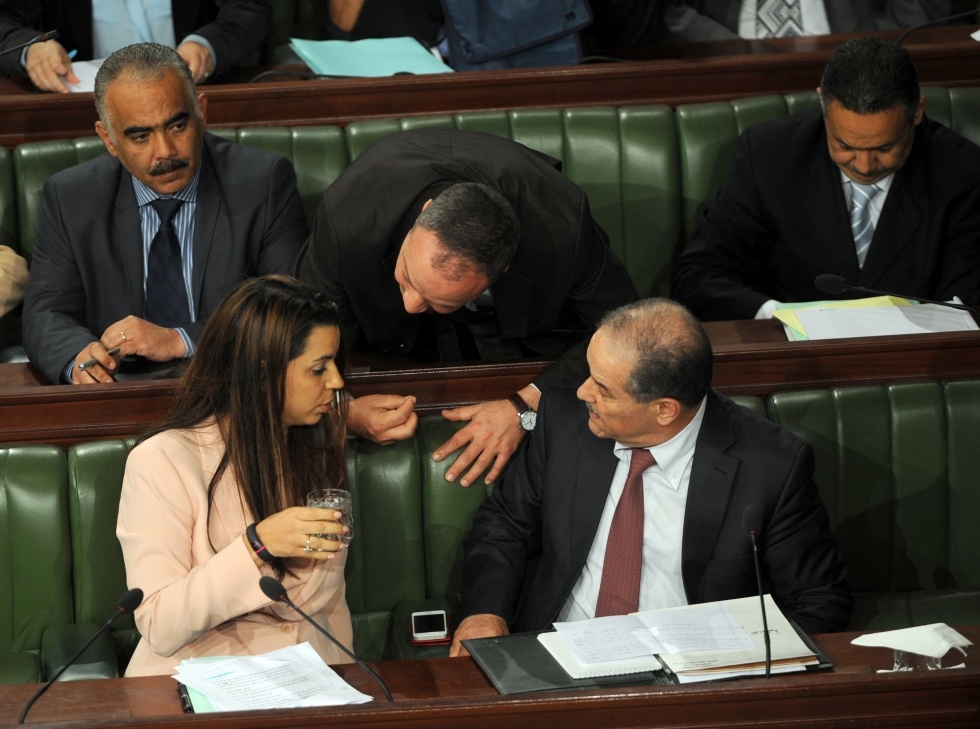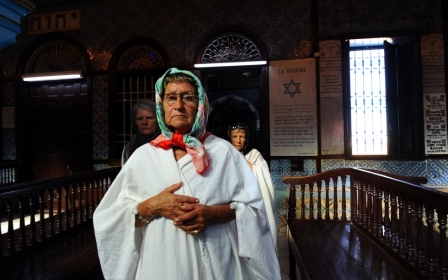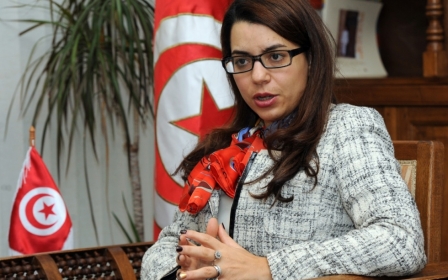Tunisia ministers escape censure over Israeli tourists' visit

Censure motions against two Tunisian ministers accused of promoting "normalisation" with Israel were withdrawn late Friday, just before deputies in the Islamist-dominated parliament were due to take a vote.
The motions were filed late last month against Tourism Minister Amel Karboul and Deputy Interior Minister for Security Ridha Sfar, with documents purporting to show that the latter give written authorisation for Israeli tourists to enter Tunisia earlier this year.
Karboul was also accused of receiving an Israeli delegation.
A vote had been expected in the evening but "the two motions of censure have been withdrawn", assembly president Mustapha Ben Jaafar announced to the assembled deputies.
"It was not our intention to attack the ministers. We wished to say that the normalisation of ties with Israel is a red line," explained centrist deputy Iyed Dahmani, an avid supporter of the motions just hours earlier.
New MEE newsletter: Jerusalem Dispatch
Sign up to get the latest insights and analysis on Israel-Palestine, alongside Turkey Unpacked and other MEE newsletters
Leftist deputy Faycel Jadlaoui said the decision not to take the matter to a vote was due to the responses of the two ministers and the fact that half of the 80 signatories to the motion had withdrawn their support.
However the news came as a surprise to some deputies in the chamber and led to heated exchanges.
It is an open secret that Israelis have been visiting Tunisia for years on the quiet.
The parliamentary debate came a week ahead of an annual pilgrimage that draws Jews from around the world to Tunisia's ancient Ghriba synagogue.
'Security reasons'
Tunisia's parliament on Friday rejected a government request to question two cabinet ministers in a "closed session". The government had cited "security reasons".
But following intense debates, only 81 lawmakers of the 217-member assembly voted in favour of the government request, which fall short of the minimum 109 needed for the motion to pass.
Some 63 members voted against the request while 5 lawmakers abstained from the vote.
Opponents argued that approving the government's request would contradict with the country's democratic path which should entail questioning any government official in public sessions - unless it is a matter of national security.
Supporters, however, say that "public" questioning sessions would see security information being leaked publicly.
Quizzing ministers in parliament does not usually lead to a withdrawal of confidence from the ministers in question.
'We do not deal with Israel'
The tourism minister denied receiving an Israeli delegation while defending her comments supporting the entry of tourists regardless of nationality, to boost a key sector of the Tunisian economy that was battered by the turbulence that followed the 2011 revolution.
The deputy interior minister defended himself against charges of promoting normalisation with Israel, saying he merely followed procedures that have been in force for years.
"The case is purely administrative... We do not deal with Israeli papers," Sfar said, explaining the tourists coming from Israel had been issued with Tunisian passes, because Tunis does not recognise Israeli passports.
Sfar justified his authorising the Israelis' entry by the need to respond to an "international campaign" accusing Tunisia of discrimination.
Prime Minister Mehdi Jomaa has tried to brush the matter aside, saying it is important the new tourism season is successful.
"Normalisation yes? Normalisation no? Let's put these great affairs aside," he told parliament last month.
"Tourism professionals have advised that, for the tourist season to be a success, the Ghriba gathering must be a success."
Israel's deadly 1985 air strike
The debate came just weeks after Israeli tourists aboard an American cruise ship were denied entry.
Tunisia is struggling with its economy three years after the ouster of autocrat Zine El Abidine Ben Ali.
Like most other countries in the Arab world, the North African nation does not recognise Israel, primarily out of solidarity with Palestinian demands for a state of their own.
Many remember Israel's deadly 1985 air strike on the headquarters of the Palestine Liberation Organisation, then hosted by Tunisia, in which 68 people were killed, and its assassination of the PLO's then number two, Abu Jihad, in Tunis three years later.
But Tunisia still has a small Jewish population of about 1,500. More than half are on the southern resort island of Djerba, where the Ghriba synagogue, the focus of the three-day pilgrimage that begins next Friday, is located.
Middle East Eye delivers independent and unrivalled coverage and analysis of the Middle East, North Africa and beyond. To learn more about republishing this content and the associated fees, please fill out this form. More about MEE can be found here.




